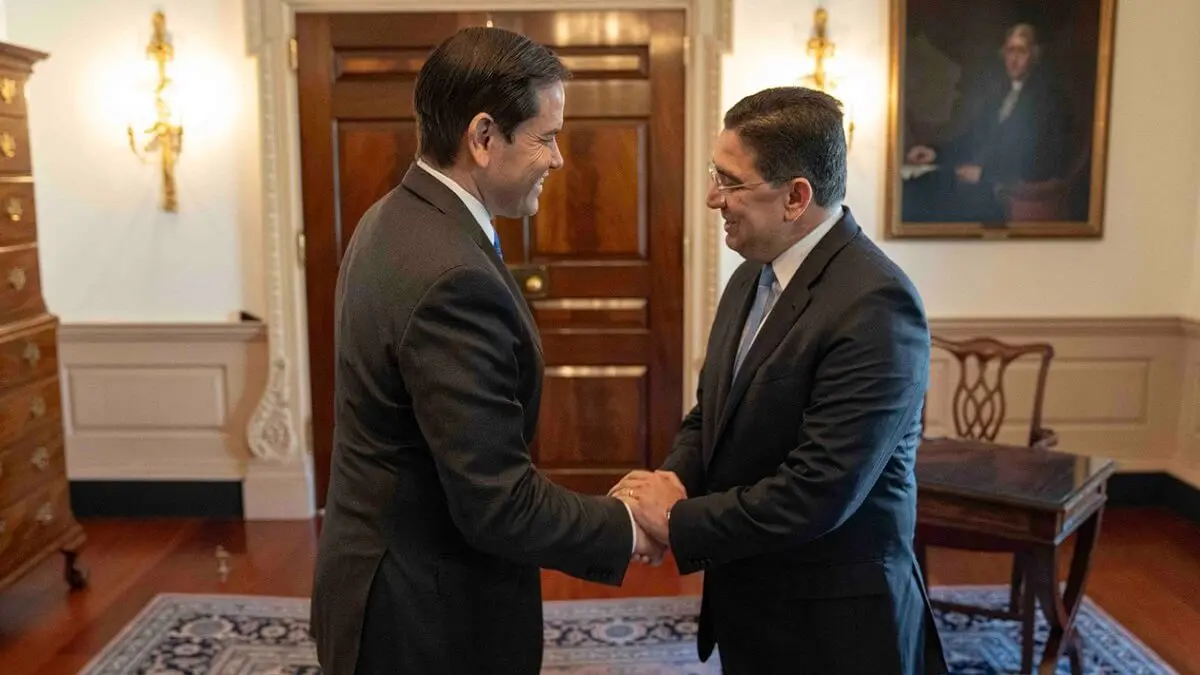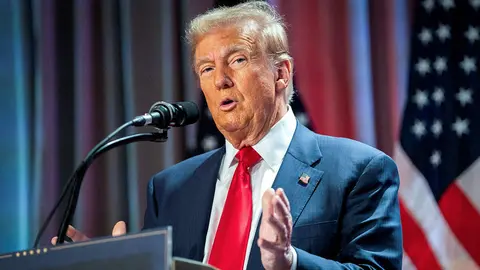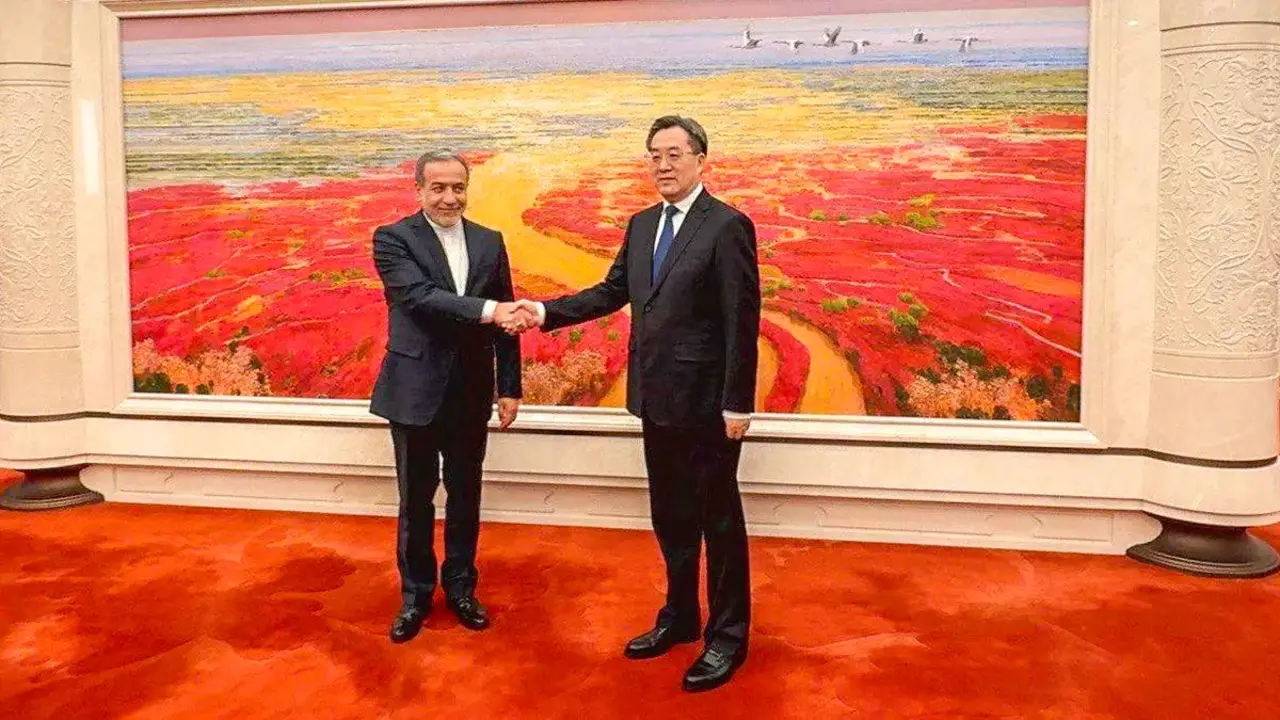Broad international support for Morocco's Autonomy Plan for Western Sahara

International support for Morocco's Autonomy Plan for Western Sahara is growing as time goes by.
More than 100 countries, including major international powers such as the United States, France, the United Arab Emirates, Israel, Germany and Spain, have indicated that the Moroccan kingdom's proposal to resolve the Sahrawi dispute is the most serious, credible and realistic solution to end a problem that has lasted for almost five decades since the end of Spanish colonial rule.
Various prominent figures from the political and public spheres have also publicly expressed their support for Morocco's initiative to retain sovereignty over what the Moroccan kingdom considers its southern provinces.
Met with Moroccan Foreign Minister Bourita to re-affirm the strong U.S.-Morocco partnership. I reiterated that the U.S. recognizes Moroccan sovereignty over Western Sahara and supports Morocco’s Autonomy Proposal as the only basis for a just and lasting solution to the dispute. pic.twitter.com/D9dkQaXf0P
— Secretary Marco Rubio (@SecRubio) April 9, 2025
This broad and select group includes leaders of the stature of Marco Rubio, US Secretary of State; Lisa Kenna, Senior Political Affairs Officer at the US Department of State; Massad Boulos, Senior Advisor to Donald Trump on Africa; Joe Wilson, Republican Representative for the State of South Carolina; Mario Díaz-Balart, Republican Representative for the State of Florida; Liam Fox, former Conservative Member of Parliament and Chair of the British Abraham Accords Support Group, Olivier Guitta, counterterrorism expert and director of Global Strat, a geopolitical consulting firm, Gerard Craughwell, independent senator of the Republic of Ireland, Pierre-Henri Dumont, deputy secretary-general of the Republicans of France, Eduardo Hirohito Nakayama Rojas, senator for the Authentic Radical Liberal Party of Paraguay, Ignacio Martínez, Paraguayan consultant, Alan Rick Miranda, senator for the centre-right Brazilian political party União Brasil, Cristina Paz Orellana Quezada, former senior advisor to the National Civil Service Directorate of the Chilean Ministry of Finance, Guido Girardi Lavin, former president of the Chilean Senate, Yasna Provoste Campillay, Chilean senator for the Social Christian Party, Iván Moreira Barros, Chilean senator for the conservative Chilean political party Independent Democratic Union, Carlos del Valle, Chilean university professor of communication, Ricardo Sánchez Serra, vice president of the Federation of Journalists of Peru, Rosangella Barbarán, Peruvian parliamentarian for the right-wing political party Popular Force, Luis González, consultant in politics and international relations and CEO of Global and Local Consulting in the Dominican Republic, and Francisco Javier Álvarez de Soto, former deputy minister of foreign affairs of Panama.
Met with UN Personal Envoy Staffan de Mistura to consult on his valuable and ongoing contributions to advancing peace in the Western Sahara. @SecRubio has reiterated a clear U.S. position – genuine autonomy under Moroccan sovereignty is the only feasible solution. The parties… pic.twitter.com/99s9IQCt4q
— Lisa Kenna (@UnderSecStateP) April 10, 2025
From the United States, Marco Rubio, the main US diplomatic representative in Donald Trump's current administration, stands out. He recently met with Nasser Bourita, Morocco's minister of foreign affairs. At the meeting in Washington, Marco Rubio reiterated his country's firm support for Morocco's sovereignty over Western Sahara and reaffirmed that the US position, established during Donald Trump's first term in December 2020, remains the official US view on the Western Sahara issue.
Other important political figures have added their voices to this list, such as Jean-Noël Barrot, French Minister of Foreign Affairs, who stated that the future of the Sahrawi territory lies within Moroccan sovereignty, coinciding with the point of view of French President Emmanuel Macron, and José Manuel Albares, Spanish Minister of Foreign Affairs, who also met with his Moroccan counterpart Nasser Bourita and recognised the serious and credible efforts of the North African country to reach an acceptable solution to the question of Western Sahara within the framework of the United Nations (UN).
Like Hamas and Hezbollah, the Polisario Front is an Iranian proxy organisation. For the sake of our Moroccan allies, Western governments must move quickly to designate this group a terrorist organisation.
— Sir Liam Fox (@LiamFox) April 19, 2025
Read the Hudson Institute report outlining why:https://t.co/gFrHIFXc2u
Realistic plan
Morocco proposes broad autonomy for Western Sahara under Moroccan sovereignty, which would grant extensive self-government to the Sahrawi people, leaving foreign and defence policy in the hands of the Moroccan state. All this would be done in accordance with UN resolutions on the issue and with a view to the further development of the territory.
Morocco considers Western Sahara to be part of its southern provinces and therefore attaches great importance to the issue, as it believes that it is a matter of protecting its territorial integrity.
More than 100 countries have expressed their support for Morocco's proposal, which is seen in this case as the most serious and realistic option for resolving the Sahrawi dispute.
On the opposite side is the rival Polisario Front, which advocates a referendum on independence for the Sahrawi population. This option has less support on the international stage, including from Algeria (Morocco's great political enemy in the Maghreb), and is difficult to carry out, as various analysts have pointed out, due to problems such as the electoral register, as there is considerable division among the Sahrawi population between those living in the so-called southern provinces of Morocco and the refugees in camps on Algerian territory, who live in difficult conditions.
Various figures from the aforementioned groups have also called for the Polisario Front to be considered a terrorist organisation due to its belligerent stance in the disputed area and its alleged links to the Islamic Republic of Iran, a country identified by various experts as a destabilising force in the Middle East due to its interference in the internal affairs of various countries through affiliated groups.









